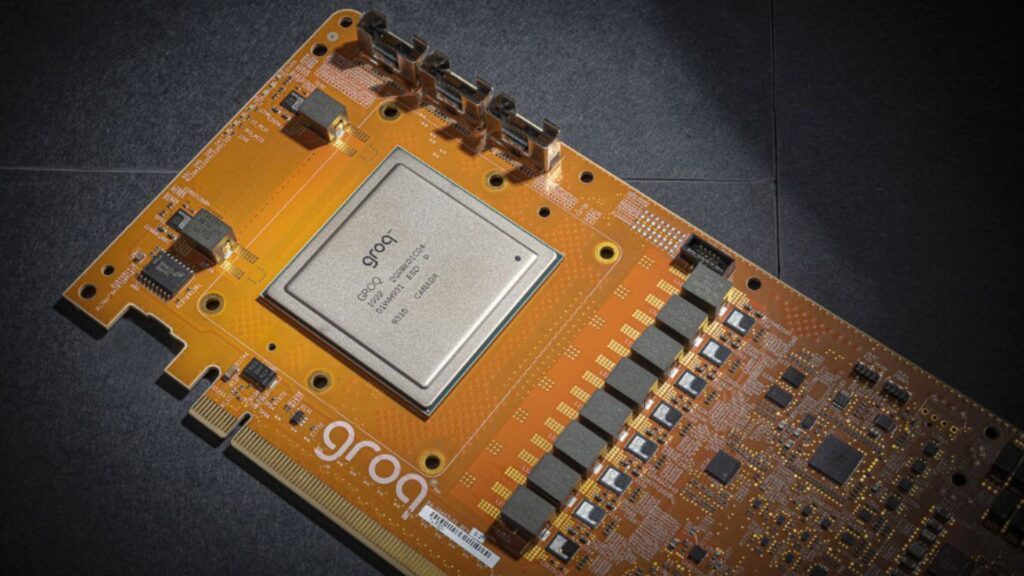
AI chipmaker Groq announced on Wednesday that it has secured $750 million in new financing at a $6.9 billion post-money valuation—more than doubling its previous $2.8 billion valuation from just over a year ago. The funding round, led by Dallas-based growth firm Disruptive, underscores investor enthusiasm for specialized hardware designed to run pre-trained AI models at scale and low cost (Reuters).
Funding Round and Key Investors
Disruptive, which has already invested nearly $350 million in Groq, spearheaded the Series D round, joined by institutional backers including BlackRock, Neuberger Berman, Deutsche Telekom Capital Partners, and an unnamed large West Coast mutual fund manager. Strategic partners such as Samsung, Cisco, D1, Altimeter, 1789 Capital, and Infinitum also participated, reflecting broad support from both financial and technology sectors (PR Newswire).
CEO Jonathan Ross emphasized the shift in AI workloads from expensive training operations to inference tasks, stating, “Inference is defining this era of AI, and we’re building the American infrastructure that delivers it with high speed and low cost.” Groq’s Language Processing Units (LPUs) are architected to run large language models and other AI applications with up to ten times greater energy efficiency and significantly lower latency than conventional GPUs.
Surging Demand for AI Inference
Industry analysts predict that generative AI inference will outpace training growth in 2025 and beyond, with inference workloads comprising more than 70% of general AI computing needs by 2026. Groq currently serves over two million developers and numerous Fortune 500 customers, operating data centers throughout North America, Europe, and the Middle East.
Earlier this year, Groq secured a $1.5 billion commitment from Saudi Arabia to deploy its chips across the kingdom, with contracts projected to generate roughly $500 million in revenue in 2025. This partnership highlights the global appetite for high-performance inference infrastructure, particularly in regions seeking to build sovereign AI capabilities (Taiwan News).
Competitive Dynamics in the AI Chip Market
Groq’s latest financing arrives amid intensifying competition among AI hardware providers. While NVIDIA continues to dominate the training segment with its GPU-based accelerators, startups and established semiconductor firms such as AMD, Intel, and Graphcore are vying for inference market share. Groq differentiates itself through a streamlined, deterministic architecture that eliminates many of the control-flow overheads inherent in GPU designs.
Alex Davis, founder and CEO of Disruptive, remarked, “As AI expands, the infrastructure behind it will be as essential as the models themselves. Groq is building that foundation, and we couldn’t be more excited to partner with Jonathan and his team in this next chapter of explosive growth.”
U.S. Export Policy and Strategic Implications
The White House recently issued an executive order to promote the export of American AI technology, positioning companies like Groq at the forefront of U.S. efforts to maintain leadership in critical technology sectors. By doubling its valuation in under 18 months and securing a diverse roster of investors, Groq signals confidence in its ability to meet the burgeoning demand for inference-optimized chips while contributing to national technology security objectives.
Outlook and Next Steps
With $750 million in fresh capital, Groq plans to accelerate product development, expand manufacturing capacity, and scale its global data-center footprint. The company is expected to unveil next-generation LPUs offering even greater performance-per-watt metrics by mid-2026. As inference workloads become increasingly central to AI applications—from real-time language translation to autonomous systems—Groq’s rocket-ship trajectory reflects the critical importance of specialized hardware in enabling efficient, cost-effective deployments of advanced machine-learning models.












Your point of view caught my eye and was very interesting. Thanks. I have a question for you.